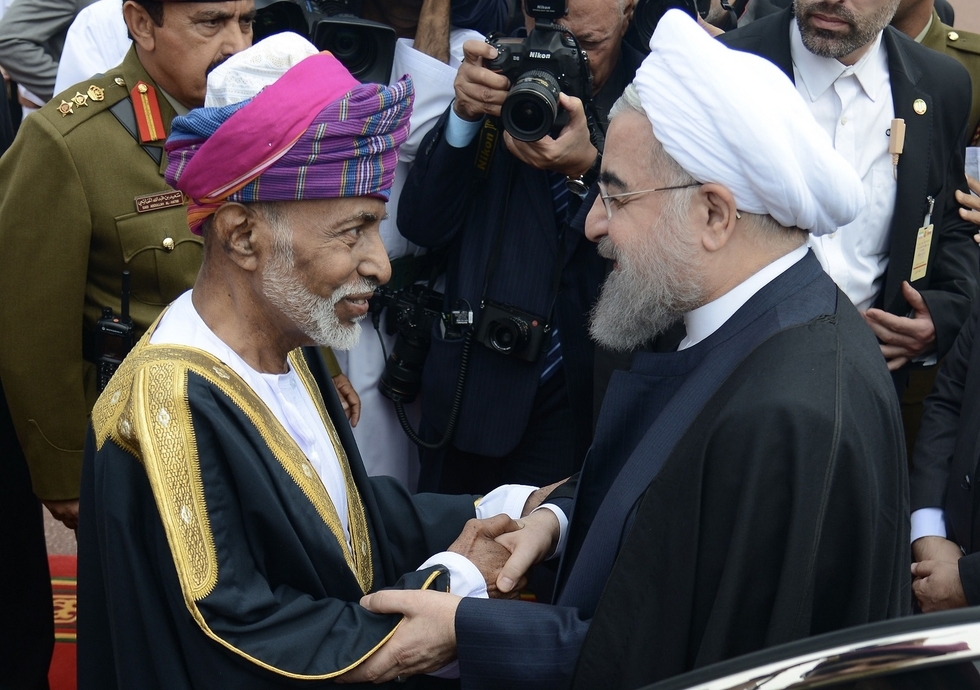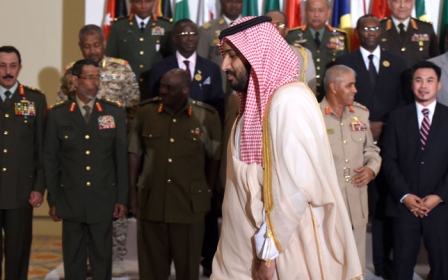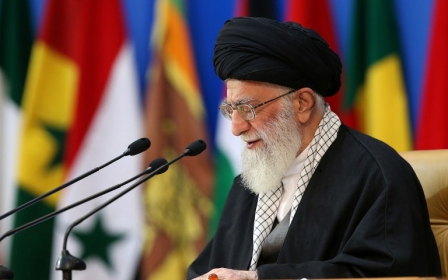Omani dissent at Arab League summit offers silver lining to Iran

This year’s Arab League summit in Amman is getting off to a sluggish start, further depressing any expectations that the forum can adequately address crises affecting the Arabic-speaking world.
By splitting the GCC through active and skilful diplomacy, the Islamic Republic can go a long way in undermining Saudi Arabia's efforts to isolate Iran
The ineffectualness of the Arab League notwithstanding, on one issue at least the organisation never fails to strike a harsh and resolute tone. On Iran, the organisation is high on rhetoric, be it to condemn Iranian regional policy or to unequivocally support the United Arab Emirates in its territorial dispute with Iran.
Despite the Arab League’s singular solidarity on Iran-related issues, this year there are signs of emerging dissent, notably Oman’s reported caution to the Jordanian hosts to tone down the anti-Iran rhetoric.
If true, this is an important development as it would reflect Oman’s tentative dissent from its longstanding position of neutrality in respect of Iranian-Saudi rivalry. More broadly, while the proceedings of the Arab League are not a huge concern to Iran, the Omani attitude is significant in relation to another Arab organisation, namely the Gulf Cooperation Council (GCC).
By splitting the GCC through active and skilful diplomacy, the Islamic Republic can go a long way in undermining Saudi Arabia’s wide-ranging efforts to isolate Iran regionally and internationally.
The Oman enigma
Oman is exceptional in the Gulf region in view of its warm relations with Iran stretching back decades. The former Shah of Iran’s decisive intervention in 1973-1974 in the Dhofar rebellion, which prevented the fragmentation of the Omani state, set the foundation for an enduring relationship.
Saudi Arabia can live with a neutral Oman, but it cannot abide a pro-Iranian stance by Muscat
More recently, Oman has tried to raise its strategic profile by acting as an honest broker between the United States and Iran. In fact, Oman has decisively intervened in matters great and small by, for instance, forging a deal to release American prisoners in Iran and, much more importantly, by playing a vital role in the early stages of the nuclear accord.
Until now, Oman has managed to sustain warm relations with Iran without upsetting its powerful neighbour to the west, namely Saudi Arabia. However, the war in Yemen has tested this fine balancing act, in view of Oman’s proximity to the conflict and attendant intense Saudi and UAE lobbying aimed at sabotaging Omani neutrality.
These efforts may have backfired though, with reports suggesting that Oman may be turning a blind eye to weapons smuggling to Houthi rebels in Yemen and even facilitating communications between Iran and the Houthis.
These allegations may be unproven, but nevertheless their significance lies in the fact that they speak to deep anxiety in Riyadh about Oman’s pivot towards Iran. Saudi Arabia can live with a neutral Oman, but it cannot abide a pro-Iranian stance by Muscat. Omani alignment with Iran not only undermines the solidarity of the GCC, but also directly challenges Saudi Arabia’s campaign to isolate Iran at the regional level.
There is deep anxiety in Riyadh about the extent to which Oman can facilitate long-term Iranian influence building in Yemen
At a minimum, Oman’s independent regional policy complicates Saudi-led efforts to stabilise Yemen on Riyadh’s terms and conditions. There is deep anxiety in Riyadh about the extent to which Oman can facilitate long-term Iranian influence building in Yemen. This is compounded by the increasing understanding in Riyadh and other regional capitals of the enduring qualities of the Houthi movement in Yemen, a reality that threatens indefinite instability along Saudi Arabia’s southern border.
Future of GCC
Saudi Arabia’s immediate priority is to use the GCC as a multinational counter to Iran. While the GCC cannot be easily mobilised militarily, at a minimum, Riyadh wants to use joint political and economic capital to isolate Iran with a view to altering the Islamic Republic’s strategic calculus.
In order to defeat Saudi's plan, Iran needs to think beyond its close ties to Oman: while Muscat's independent stance challenges GCC coherence, crucially, it doesn’t fatally undermine it.
Absent sustained and sincere UAE collaboration, Saudi Arabia’s campaign to apply regional pressure on Iran is doomed to failure
There are growing signs of Iran stepping up diplomacy with a view to cultivating other members of the GCC. In late January, the Kuwaiti foreign minister, Sheikh Sabah al-Khalid al-Hamad Al Sabah, made a rare visit to Tehran, raising hopes of improved ties with the Islamic Republic.
From Iran’s point of view, Kuwait holds promise given its relative distance from Saudi policy and, more importantly, because the sheikhdom’s attitude towards Iran is shaped by a degree of contrition owing to Kuwait’s self-defeating support for Saddam Hussein during the long running Iran-Iraq War.
Iran is also expected to step up outreach to Qatar by capitalising on joint economic interests, notably the massive South Pars gas field project. It is noteworthy that Qatar was one of the first countries to welcome the Iran nuclear accord, dissenting from the Saudi position on this issue.
While for the foreseeable future – and for obvious reasons - Bahrain cannot be successfully engaged at a diplomatic level, the Islamic Republic has many diplomatic and economic tools to influence the attitude and policy choices of the UAE. These range from the sizeable Iranian community across the Emirates (with a large concentration in Dubai), extensive trade links and even potential engagement on UAE grievances over the three Iranian islands in the Gulf.
Absent sustained and sincere UAE collaboration, Saudi Arabia’s campaign to apply regional pressure on Iran is doomed to failure. In the final analysis, contrary to conventional wisdom, Iran has considerable diplomatic leverage to positively affect the outcome of its bitter rivalry with Saudi Arabia.
- Mahan Abedin is an analyst of Iranian politics. He is the director of the research group Dysart Consulting.
The views expressed in this article belong to the author and do not necessarily reflect the editorial policy of Middle East Eye.
Photo: Oman's Sultan Qaboos bin Said (L) greets Iranian President Hassan Rouhani upon the latter arrival in Muscat on February 15, 2017. (AFP)
Middle East Eye propose une couverture et une analyse indépendantes et incomparables du Moyen-Orient, de l’Afrique du Nord et d’autres régions du monde. Pour en savoir plus sur la reprise de ce contenu et les frais qui s’appliquent, veuillez remplir ce formulaire [en anglais]. Pour en savoir plus sur MEE, cliquez ici [en anglais].





